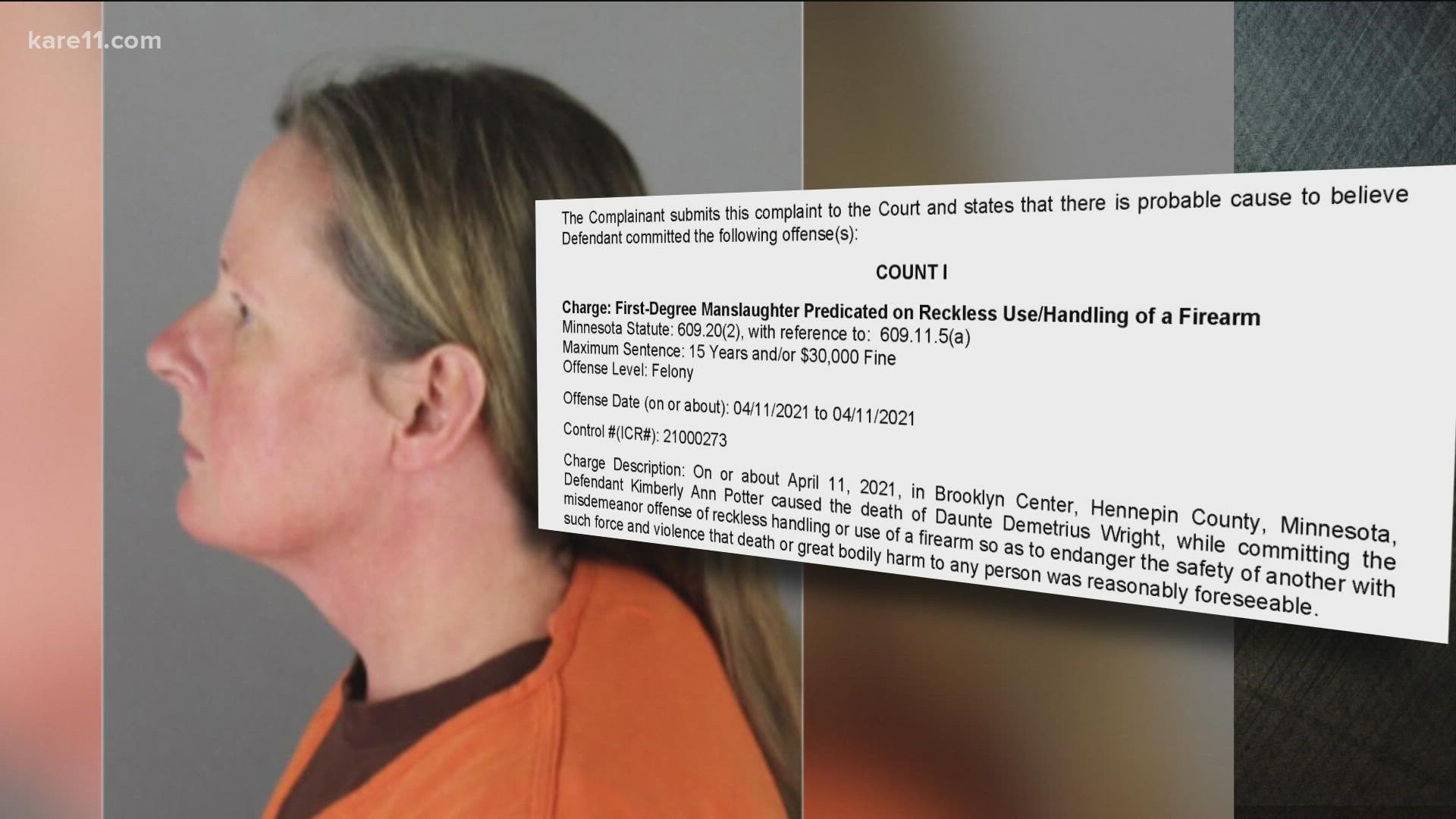BROOKLYN CENTER, Minn — Former Brooklyn Center police officer Kim Potter's trial is scheduled for Nov. 30. With her most serious charge now upgraded to first-degree manslaughter, it does not appear she will face a murder count.
According to her attorney Earl Gray, who spoke to KARE 11 Friday, there will be no guilty plea either.
"It's just an abuse of power by Keith Ellison, but that doesn't surprise me. And when we go to trial, we'll win both cases," Gray said.
"So there's not going to be a plea?" reporter Lou Raguse asked.
"No, never," Gray said.
When protesters demonstrated outside the home of Washington County Attorney Pete Orput, they demanded he charge Potter with murder.
Orput said a murder charge doesn't fit this case.
Potter allegedly thought she was firing a taser when she shot her handgun, killing 20-year-old Daunte Wright as he tried to flee a traffic stop.
Attorney General Keith Ellison took over the prosecution of the case and this week upgraded the charge to first-degree manslaughter.
But to Nekima Levy Armstrong, who led those initial protests, the new charge falls short.
"My first reaction is, although I'm glad the charge was upgraded, I still don't think it's enough," she said.
When asked whether she still thinks there should be a murder charge, Armstrong said, "Absolutely."
Armstrong compared the case to former Minneapolis police officer Mohamed Noor, who was convicted of third-degree murder for shooting Justine Ruszczyk Damond after she called 911 asking for help.
"That particular shooting happened late at night, he did not see who he was shooting at, and yet it was enough for a third-degree murder charge to be sustained," Armstrong said.
Potter's new charge is called manslaughter in the first degree predicated on reckless use of a firearm.
"The key difference is the amount of time a person gets," said attorney Mike Bryant, who is not involved in the case but has reviewed the public documents.
Bryant said first-degree manslaughter is harder to prove than the initial charge of second-degree manslaughter. It would carry a presumptive sentence of seven years in prison instead of four.

